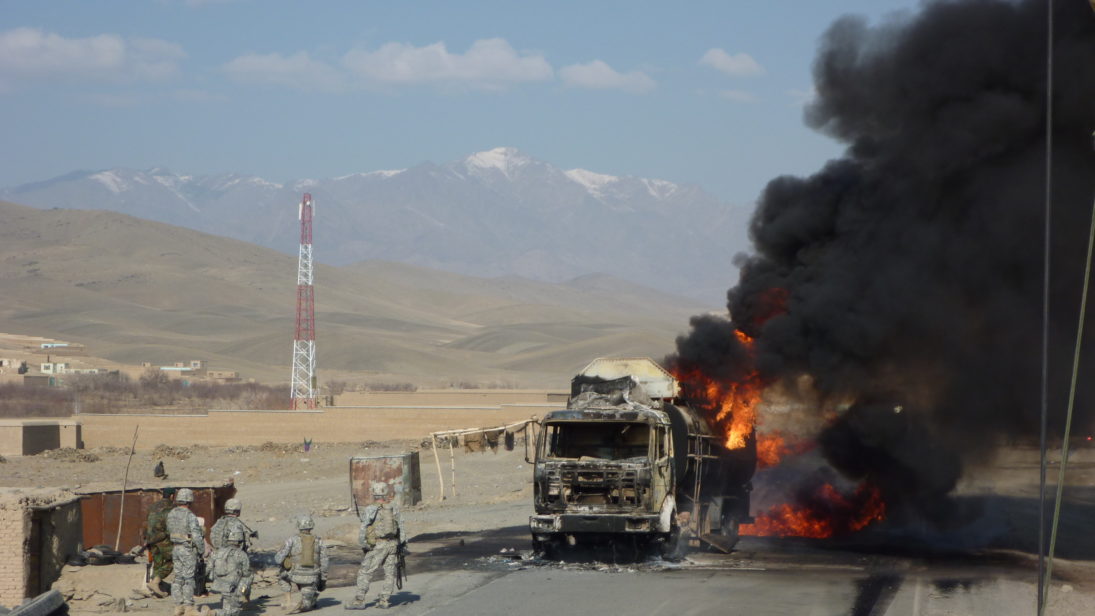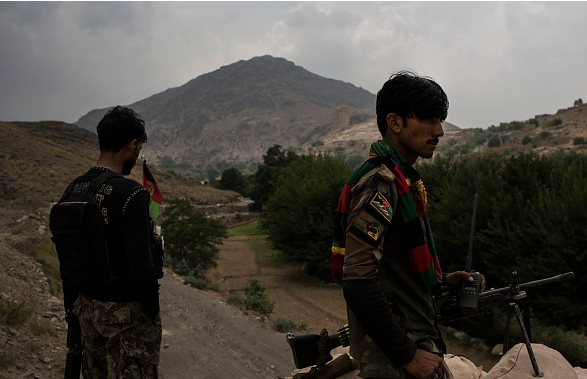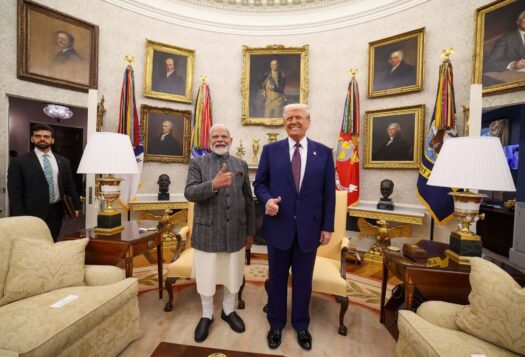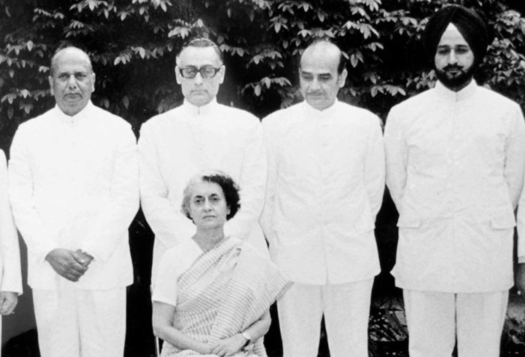
Increases in civilian and security force casualties shaped Afghanistan’s landscape of violence in 2017. Much has been written about the dire security situation across the country in light of a fresh spate of attacks in Kabul, but another key dimension of the bloodshed has drawn relatively less critical attention: the rise of violent incidents from the Islamic State in Khorasan Province (ISKP), the Islamic State’s (IS) regional affiliate in Afghanistan. In 2017, ISKP proved to be a formidable adversary for the governments and militaries of the United States and Afghanistan as well as the Taliban itself. Of the four terror attacks in Kabul that left over 130 dead in the span of nine days, the Taliban claimed two of the incidents while IS claimed the other two, a fact that may indicate ISKP is launching attacks in Kabul simply as a show of strength against its rival. The tussle between the two outfits has intensified over the years, but it remains to be seen whether IS has a chance of overtaking the Taliban in Afghanistan. Moreover, external powers–Iran and Saudi Arabia–have the means to intervene, potentially tipping the balance of competition with funds, arms, and other methods of support. This external help, as well as tactical changes in the group’s religious philosophy, will determine whether ISKP can overtake the Taliban’s influence in Afghanistan.
Rise of the Islamic State in Afghanistan
After its military success in Iraq and Syria, IS began extending its branches by trying to persuade like-minded outfits outside the Middle East. Thus, the emergence of IS in South Asia can be traced back to 2014, when IS leader Abu Bakr al-Baghdadi reportedly sent a delegation to contact TTP fighters in South Waziristan and Baluchistan. Those who defected are understood to have maintained a low profile when they fled to Afghanistan following the Pakistani military’s Zarb-i-Azb operation in North Waziristan, and eventually settled in Nangarhar province.
When ISKP pledged allegiance to Baghdadi in 2014, a rift seems to have emerged between the Taliban and ISKP. Within a couple of months, ISKP took territory from the Taliban and started killing Taliban fighters and sympathizers. IS’ executions of Taliban fighters sent a message that it is even more ruthless than the Taliban. In response, the Taliban had to assemble its fighters to push IS out of areas that were once its strongholds. Meanwhile, the Afghan government was forced to rethink its approach of using IS to fight the Taliban once neighboring states such as Russia, China, and Pakistan expressed apprehensions of IS’ rise in Afghanistan.
Today, ISKP draws its power from the recruitment of fighters who see the Taliban as a religiously-flexible pawn of foreign agencies. It has continued to mobilize fresh recruits from the crumbling TTP, and with those recruits has come revenue from opium routes that have long been controlled by the TTP. For this reason, analysts have conjectured that drug trafficking revenue that once flowed to the TTP now flows to ISKP. If true, this will help ISKP sustain its activities despite the setbacks recently suffered by its parent organization in Iraq and Syria.

Iran-Saudi Rivalry
The geopolitical and ideological rivalry between Iran and Saudi Arabia has also played a catalyzing role in the competition between the Taliban and ISKP. ISKP adheres to Salafi Islam—a fundamentalist brand of Islam that has long been propagated by Saudi Arabia—and sees Shias as kafirs (infidels). In Afghanistan, ISKP has stoked sectarian conflict with the aim of portraying itself as the only bulwark against Shia expansionism in South Asia. It initiated this campaign by striking a crowded Shia mosque in Kabul with a suicide bomber in November 2016. The unabated attacks against Shias in Afghanistan reportedly forced Iran, which views itself as the protector of Shia Muslims around the world, to reach out to the Taliban, providing Taliban insurgents arms, training, and other forms of support.
The Taliban’s connection to Salafism would seemingly make the group a natural ally for Saudi Arabia, not Iran. But the real story is much murkier: in eastern Afghanistan, Salafis and the Taliban worked together despite internal fragmentation and suspicion over the Taliban’s religious sympathies. When ISKP moved into the eastern Nangarhar province, the majority of local Salafis defected from the Taliban and joined ISKP, providing an “indigenous base” for the group in the process. As research by Borhan Osman of Afghanistan Analysts Network shows, IS has earned the support of Salafi-jihadists across Afghanistan by casting itself as the “only genuine jihadi force” in the Af-Pak region.
With ISKP targeting Shia religious sites, Iran is understood to have stepped in to prop up the Taliban vis-à-vis ISKP. Yet accepting Iran’s aid could prove dangerous for the Taliban’s unity. If Riyadh sees Taliban-Iran cooperation materializing, it could reach out directly to the Salafi contingent within the Taliban, potentially causing the group to splinter. If this happens, it could send the Taliban’s leadership into disarray, worsening the internal cleavages that developed after the death of former commander Mullah Omar. If the Taliban’s leadership were to unravel, this would give ISKP a distinct strategic edge.
Religious Rulings
In May 2017, ISKP issued a one-page memo on takfir, or the practice of declaring other Muslims to be non-believers. The ruling took a radical and expansive approach to takfir, potentially branding Muslims who do not condemn all other nonbelievers heretical. This belief was in line with the most extreme factions of IS, which have long held exclusionary and purist tendencies, but it was ultimately rescinded due to backlash from senior IS scholars and ideologues. By rescinding takfir, IS in Afghanistan and Pakistan will attract new recruits who were hesitant to join because of the group’s condescension towards other movements and organizations. Additionally, while it’s unlikely that other terrorist organizations will come to fully integrate with ISKP, it is possible that ISKP could begin to coordinate with other militant groups much like the Taliban maintains close ties with the Haqqani Network.
The other ruling of concern is tatarus, which decrees the usage of Muslims as shields in warfare within IS’ religious doctrine. In military jargon, this means that ISKP allows for Muslims (i.e. the Taliban, Shias, civilians, and any other group of Muslims that ISKP may be fighting against or impacting with their operations against the Taliban, the United States, or the Afghan government) to be collateral damage in ISKP’s jihad. Previously, some within IS have defended the practice of tatarus. However, if ISKP begins to defeat the Taliban militarily and ideologically, the group may make the strategic decision to overturn the tatarus decree, altering ISKP’s presently lax stance towards civilian casualties. If the people of Afghanistan come to view ISKP as a benevolent alternative to the Taliban, they are more likely to “win hearts and minds” and uphold their influence in Afghanistan in the long-term.
Conclusion
With parliamentary elections looming, the Afghan government and the United States should try their best to bring some sort of stability to Afghanistan. They should resist intervening in the strategic competition between the Taliban and ISKP. Even if the government could exploit the division between the two organizations for tactical gains in the short run, such a move would have a deleterious impact on Afghan society, in the long run, ravaging the country with sectarian conflict.
ISKP will continue to aim towards curbing the Taliban’s influence and emerging as the sole jihadist group in Afghanistan. They will maneuver the complex geography of religious affiliations, external alliances, and ideological divergences to sustain tactical and strategic gains vis-à-vis the Taliban. External powers—Iran, Russia, China, Saudi Arabia, Pakistan—will place their strategic bets as they see fit. If ISKP plays its hand carefully, it has the potential to overtake the Taliban, an achievement that would have implications for the United States and the Afghan government alike. Until then, it is undeniable that ISKP is not only a brutal reality for Afghanistan but a force to be reckoned with in the future.
***
Click here to view this article in Urdu
Image 1: DVIDSHUB via Flickr
Image 2: Andrew Reinnesan via Getty


